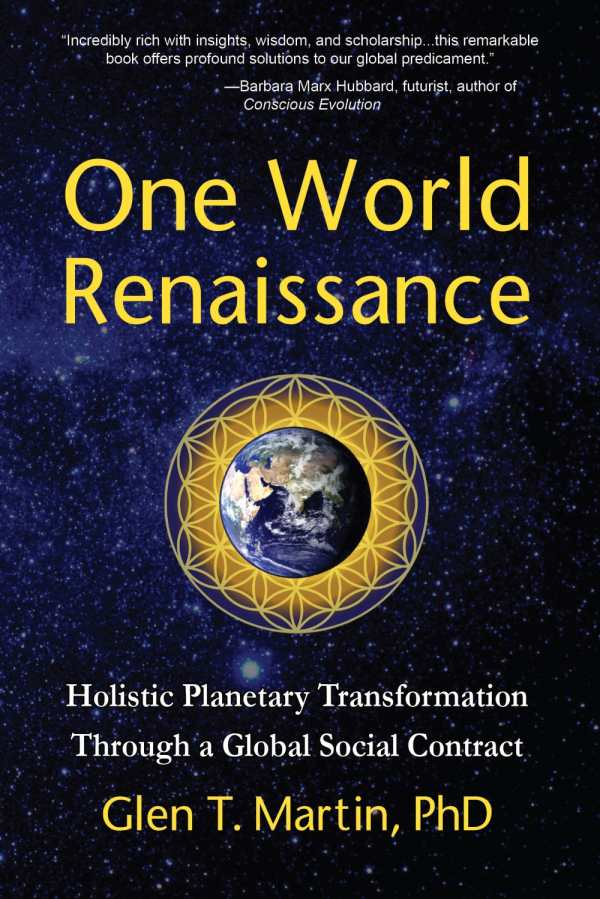One World Renaissance
Holistic Planetary Transformation through a Global Social Contract
Martin’s ambitious and well-researched work calls for the recognition of a new paradigm of interconnectedness in order to face global crises.
In his complicated and challenging One World Renaissance, Dr. Glen T. Martin discusses the necessity of a “shift to holism” that would help cement a global social contract. Specifically, Martin looks at “transformative holism,” a holism that can help humans realize their potential in a sort of utopian vision of the world.
Martin describes holism as “the most fundamental discovery of 20th-century science,” a bold claim that he defines as “the discovery that the entire universe is an integral whole” composed of fields within fields that mirror the broader structure. Parallel to this, a global awareness is growing that the problems we face (and share) must be taken on by a united and mindful people who are willing to enter into a “global social contract,” a part of Martin’s proposed solution.
Martin’s work is not for the lay reader; his discussion of holism and global issues is aimed at a sophisticated reader who has already wrestled with these types of issues and thus is interested in the solution that Martin lays out. Early parts of the work are focused on tracing the history of thought on different cultures’ ways of viewing the world, including paradigms stemming from the work of Newton, Descartes, and Weber.
The book’s esoteric ideas are sometimes hard to relate to definitive examples, and the work as such becomes more philosophy than practical guide. There are some sections, such as “The Rule of Law Among Nations after 9/11” in chapter 5, with an extensive discussion on both individual and nation-state terrorism, that are exceptions to this general rule; but as a whole, the work is more focused on the broader ideas behind the philosophy and not the details they apply to.
One World Renaissance is a work suited to the thoughtful reader looking for a philosophical study of a unifying theory of human culture. At times dense and complicated, Martin’s ambitious and well-researched work calls for the recognition of a new paradigm of interconnectedness in order to face global crises, complete with a pledge to live out the ideals inherent within this dedication.
Reviewed by
Stephanie Bucklin
Disclosure: This article is not an endorsement, but a review. The publisher of this book provided free copies of the book to have their book reviewed by a professional reviewer. No fee was paid by the publisher for this review. Foreword Reviews only recommends books that we love. Foreword Magazine, Inc. is disclosing this in accordance with the Federal Trade Commission’s 16 CFR, Part 255.

